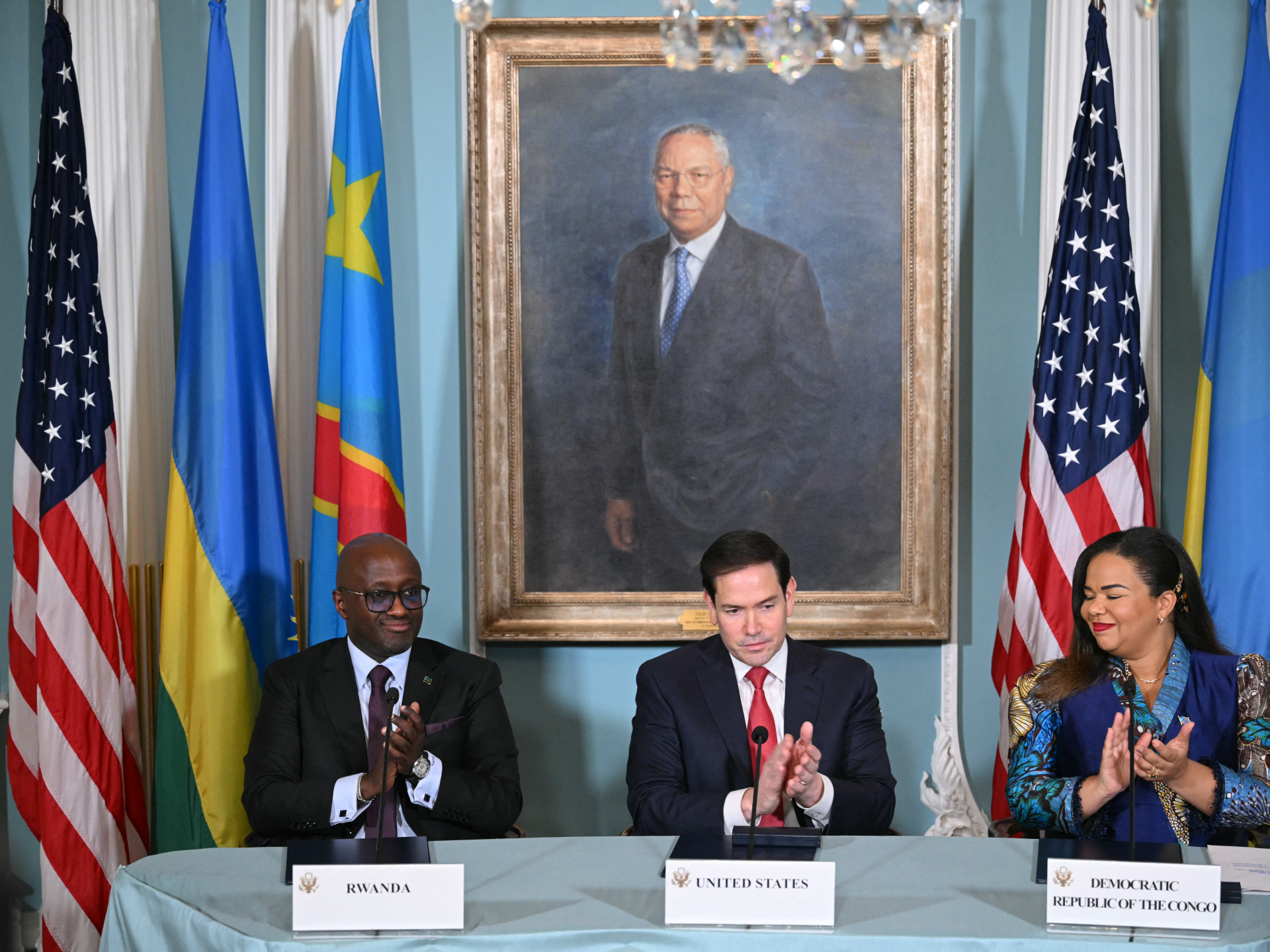
The Democratic Republic of Congo (DRC) and Rwanda have taken a significant step towards ending decades of conflict with the first meeting of their Joint Monitoring Committee, held on July 31, 2025, in Washington, D.C.
This follows the landmark peace agreement signed under US auspices on June 27, 2025.
The meeting brought together representatives from the two nations alongside observers from the United States, Qatar, Togo, and the African Union Commission (AUC).
The agreement seeks to resolve longstanding political, security, humanitarian, and economic tensions, building on the Harmonized Plan for the Neutralization of the FDLR and the Disengagement of Rwandan Forces (CONOPS) adopted in Luanda in October 2024.
The Joint Monitoring Committee will supervise the agreement’s implementation, investigate violations, recommend corrective actions, and promote peaceful dispute resolution.
During the inaugural session, the committee appointed its leadership, agreed on terms of reference, and prepared to establish a Joint Security Coordination Mechanism (JSCM).
This new body will include military, intelligence, and foreign ministry officials from both countries, with oversight from US and Qatari observers.
Its mandate will cover monitoring CONOPS implementation, overseeing the neutralization of the FDLR, and ensuring adherence to military disengagement commitments. Monthly detailed reports are to be produced.
Both nations have pledged to respect each other’s sovereignty, renounce hostilities, and cease support for armed groups. Any disputes are to be resolved peacefully, respecting colonial-era borders. The agreement also aligns closely with ongoing negotiations mediated by Qatar between Kinshasa and the M23 rebel group, emphasizing strict criteria for any reintegration of combatants into the Congolese security forces.
On the humanitarian front, the agreement commits to safe, voluntary refugee returns and unhindered humanitarian access, reaffirming prior tripartite accords with UNHCR. The role of MONUSCO, the UN peacekeeping mission in eastern Congo, is recognised and respected, with guarantees for its freedom of movement and personnel safety.
Economic cooperation forms a key pillar, with plans to establish a regional integration mechanism within three months. This will include joint management of Lake Kivu, traceable mineral supply chains, independent audits, and the exclusion of illicit trade, supported by regional bodies such as AfCFTA, ICGLR, and EAC, and backed by American investment.
The Monitoring Committee will meet regularly, operating by consensus among the DRC, Rwanda, the US, Qatar, and the African Union. The agreement, effective immediately and open-ended, may be amended or terminated with mutual consent or 60 days’ notice.
This historic initiative marks a hopeful chapter in Central Africa’s pursuit of lasting peace and regional cooperation.



